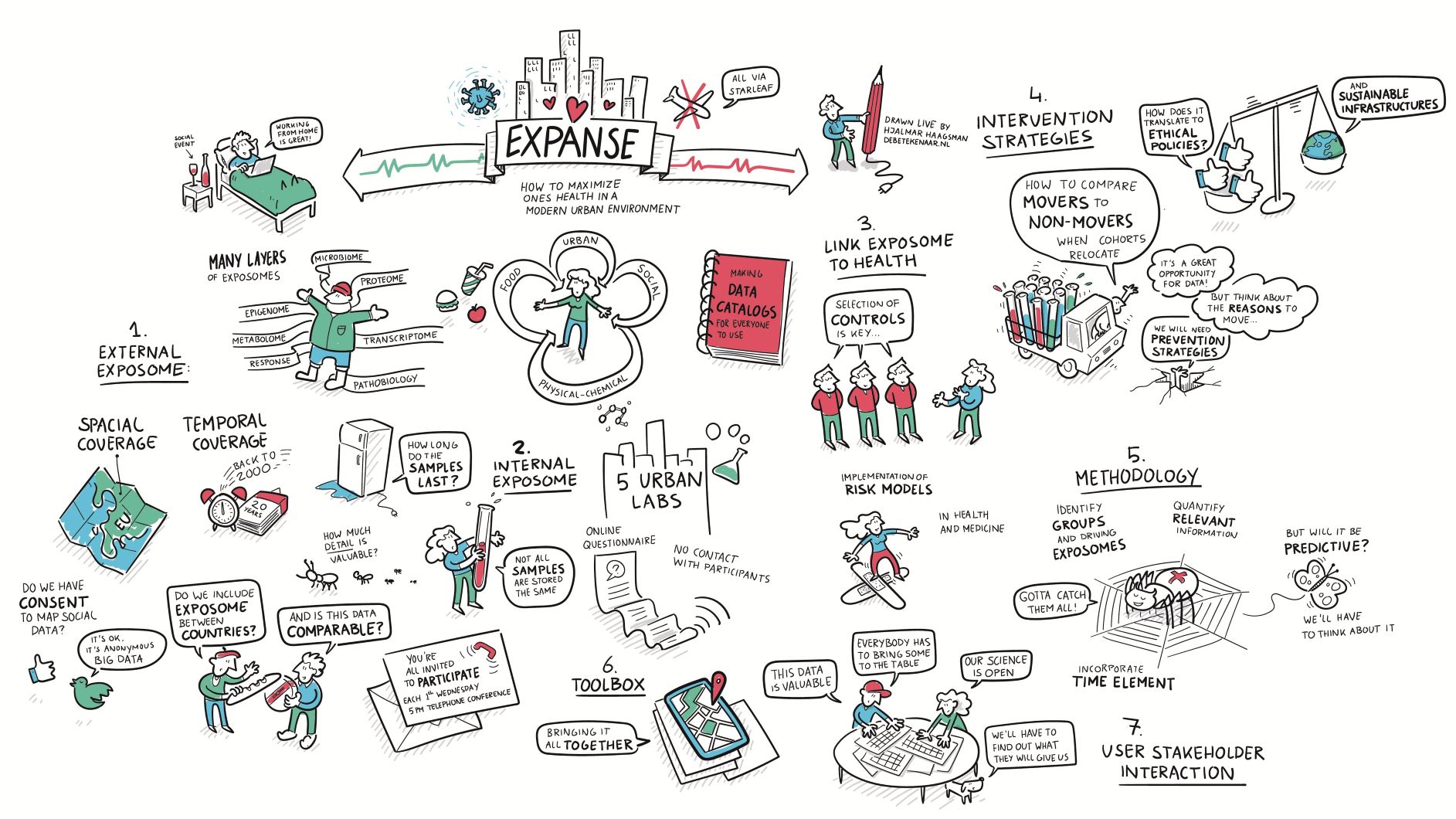Exposome Research to Improve People’s Health in Urban Settings
17.03.2020
By 2030, more than 80% of Europe’s population will live and interact within a complex urban environment, consisting of a mixture of social and environmental factors. These factors include where we live and work, what we eat, our social network, and which substances we are exposed to. These factors, known as the urban exposome, have an impact on our health. As part of the recently launched EXPANSE project, Swiss TPH and partners investigate the impact of the urban exposome on cardio-metabolic and pulmonary disease in Europe.

Life in complex urban environments poses major challenges for urban planners, policy makers, and citizens. (Photo: Grigory Bruev, 123rf)
According to the World Health Organization (WHO), cardiovascular diseases cause more than half of all deaths across Europe. Respiratory diseases are a leading cause of death and disability and account for roughly 8.2% of all deaths in Europe. Of the six WHO regions, Europe is the most affected by non-communicable diseases (NCDs).
The environment we live in accounts for an estimated 70% of the chronic disease burden. With more and more people living in the cities, one of the most pertinent questions for urban planners, policy makers and European citizens is how to maximise people’s health and well-being in a modern urban environment.
The EU-funded EXPANSE project (EXposome Powered tools for healthy living in urBAN SEttings) will address this question through studying the urban exposome, which is the sum of all non-genetic drivers of health and disease, and evaluating interventions aimed at reducing the impact of the urban exposome on people’s health. The University of Utrecht coordinates the project in collaboration with Swiss TPH and 18 other partners, with an overall budget of 11.9 million EUR. EXPANSE will obtain data from 30 cohorts from 10 countries.
Looking at health from a new angle
The exposome is defined as a measure of all the exposures an individual faces in a lifetime, and how those exposures relate to health. An individual's exposure begins before birth and is influenced by environmental and occupational factors. The urban exposome is the set of environmental factors that are experienced in the outdoor urban environment.
Investigating the impact of the urban exposome presents a fundamental shift in looking at health, by moving research away from a ‘one exposure, one disease’ understanding to a more comprehensive overview to assist with cost-effective preventive actions and policies in the future. This research responds to the need for more complete and accurate exposure data to estimate the largely unknown environmental component of NCDs.
EXPANSE will take the next step in exposome research by bringing together the exposome and health data of more than 55 million people in Europe and conducting personalized exposome assessment for 5,000 individuals living in five “Urban Labs”. Researchers will study the evolution of the exposome and health through the life-course, and evaluate the impact of change in the urban exposome on the burden of cardio-metabolic and pulmonary disease. The project will establish the largest European Urban Exposome consortium to date and build upon the methodological development and insights gained from the first generation of exposome projects. EXPANSE will translate its insights and innovations into research and dissemination tools that will be openly accessible via the EXPANSE toolbox.
Exposome research within EXPANSE project at Swiss TPH
Swiss TPH leads the project activity dealing with the external exposome, which provides exposure data to the EXPANSE cohorts on nutritional, social, physico-chemical and human-made conditions, and applying geostatistical and machine learning techniques to model a range of environmental stressors. Together with colleagues from the University of Utrecht, Swiss TPH researchers also develop models to estimate EU wide exposures on air pollution, noise, UV and climate. “Our thematic focus is to develop state-of-the-art methods and models to characterise the external exposome at a fine spatiotemporal scale,” said de Kees de Hoogh, Project Leader at Swiss TPH. “The data will feed into health analysis where EXPANSE will investigate the relationship between the urban exposome and cardio-metabolic and pulmonary disease in up to 57 million people.”
Nicole Probst-Hensch, Head of the Department Epidemiology and Public Health at Swiss TPH, is leading the “Urban Lab”, a crosscutting activity, which links several areas, cities, and partners of the project. “By conducting personalised measurements with people about their activities, we can obtain an in-depth and more precise understanding on how life in a city influences our well-being, our health and our overall satisfaction with life.” said Probst-Hensch.
The European Human Exposome Network
EXPANSE is part of the European Human Exposure Network launched by the EU. The network combines nine research projects funded under Horizon 2020, the EU Framework Programme for Research and Innovation, and involves 126 research groups from 24 countries. Together, these projects represent 106 million EUR of funding from the EU over a 5-year period. The common goal of the nine large-scale research projects is to understand the health impacts of a lifetime of environmental exposures.

Contact

Nicole Probst-Hensch
Professor, PhD (Pharmacy and Epidemiology), MPH
Head of Department
+41612848378
nicole.probst@swisstph.ch

Kees de Hoogh
PD, PhD
Group Leader
+41612848749
c.dehoogh@swisstph.ch